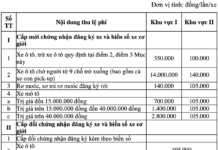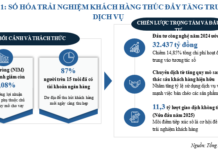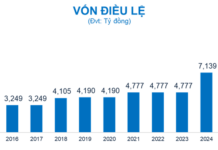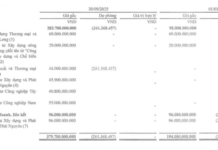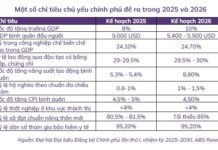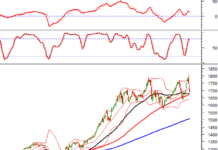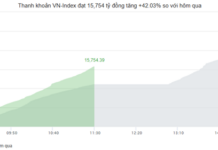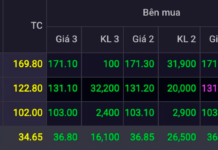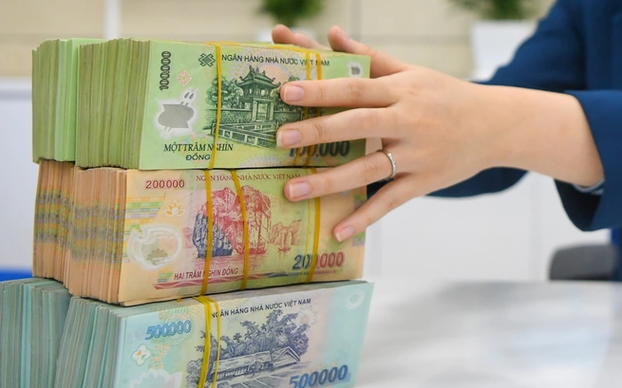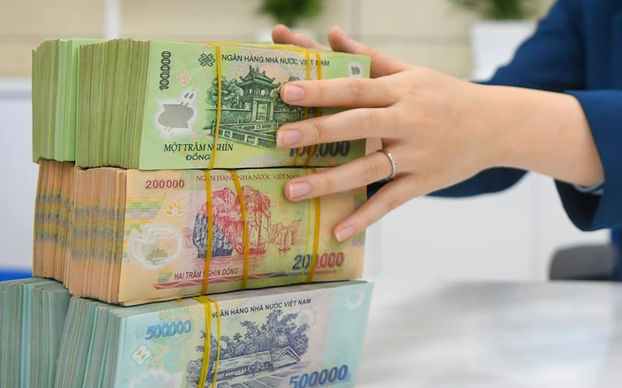
Illustrative image
Orient Commercial Joint Stock Bank (OCB) recently announced a new deposit interest rate, reducing rates for long-term deposits of 24 and 36 months. Specifically, the savings interest rate for the 24-month term decreased by 0.2 percentage points to 5.6% per annum, while the 36-month term decreased similarly to 5.8% per annum. For the remaining terms, OCB maintained the interest rates as listed over the past two months.
OCB is one of the few banks moving against the market’s general trend of adjusting deposit interest rates. Previously, Bac A Bank, SeABank, and ABBank had made similar moves.
According to the new deposit interest rate effective from August 14, Bac A Bank has reduced deposit interest rates by 0.05-0.2 percentage points across all tenors.
In the first week of August, SeABank also reduced deposit interest rates by 0.25% across all terms. Prior to this, the bank had increased the highest interest rate to 6.2% per annum, leading the market.
Recently, ABBank also reduced online deposit rates for multiple terms. Specifically, the 3-month term decreased by 0.1 percentage points to 4.0% per annum; the 6-month term decreased by 0.3 percentage points to 5.0% per annum; the 9-month term decreased by 0.2 percentage points to 5.5% per annum; and the 12-month term decreased by 0.2 percentage points to 6.0% per annum.
The momentum of increasing deposit interest rates has shown signs of cooling down last week after a widespread increase in June, July, and early August. Not only have the first banks started to reduce interest rates, but the market last week also witnessed only one bank slightly adjusting upward savings interest rates for short-term deposits.
This development comes as credit growth has shown signs of cooling down after a strong acceleration in the second quarter. According to data from the State Bank of Vietnam, credit growth compared to the end of 2023 slowed to 5.3% on July 17, after accelerating to 6% at the end of June.
In another development, from August 5, the State Bank of Vietnam (SBV) simultaneously reduced the OMO interest rate and the bill interest rate by 0.25 percentage points as exchange rate pressure showed signs of cooling down. This move is expected to support the liquidity of the banking system.
“This shows that the SBV is confident in controlling the exchange rate and is ready to implement monetary policies to support the economy when there is an opportunity,” Phu Hung Securities assessed.
Similarly, Vietcombank Securities (VCBS) also believes that, given the positive macroeconomic indicators and the SBV’s orientation, liquidity is expected to stabilize and become more abundant, and interbank interest rates may fall again.
Previously, in the context of low deposit growth from individuals and businesses, along with recovering credit growth, many banks had to increase deposit interest rates to ensure capital balance. At the same time, the State Bank of Vietnam’s (SBV) interventions through bill and foreign currency sales channels also affected the VND liquidity of banks.
“This, together with the net withdrawal of money through the foreign currency sales channel, may put liquidity pressure on the banking system and the interest rate environment in the second half of 2024,” Dragon Vietnam Securities assessed.
Despite showing signs of slowing down, deposit interest rates are expected to remain under upward pressure in the last months of 2024.
In a new analysis report, Military Bank Securities believes that, in the context of credit growth increasing three times faster than the growth rate of capital mobilization, banks are eager to increase deposit interest rates to enhance the competitiveness of savings channels compared to other investment channels in the market.
The analysis team believes that input interest rates will continue to rise in the second half of 2024 due to stronger credit demand from mid-2024 as production and investment accelerate in the last months of the year.
“We forecast that the 12-month term deposit interest rate of large joint-stock commercial banks may increase by another 0.5 percentage points, returning to the range of 5.2-5.5% per annum by the end of 2024,” the MBS report wrote.
Dragon Vietnam Securities (VDSC) also assessed that an increase in deposit interest rates is a suitable scenario based on the movements of exchange rate expectations and interest rate policies.
However, VDSC believes that the increase will not be as drastic as in 2022 due to different macroeconomic contexts. The year 2024 lacks the factors that caused a shock in credit demand and a sudden change in monetary policy in 2022, leading to a surge in interest rates. In addition, the pressure of net foreign currency withdrawals will ease significantly if there is an additional “convergence” effect on interest rates (FED reduces interest rates while SBV increases interest rates in the second half of the year). Therefore, VDSC forecasts that an increase in the interest rate level to return to the pre-Covid-19 pandemic average is a reasonable scenario.
Latest Interest Rates at Agribank in February 2023: Highest Rate for 24-month Term
Interest rates for deposits at Agribank have further decreased in early February 2024 compared to January. Specifically, individual customers’ deposits are subjected to interest rates ranging from 1.7% to 4.9% per annum, while business customers’ deposits are subjected to interest rates ranging from 1.7% to 4.2% per annum.
Latest Interest Rates from VietinBank in February 2024: Up to 5% per annum
According to the latest survey in February 2024, VietinBank offers the highest deposit interest rate of 5% per annum for personal deposits of 24 months or more with interest paid at maturity.





